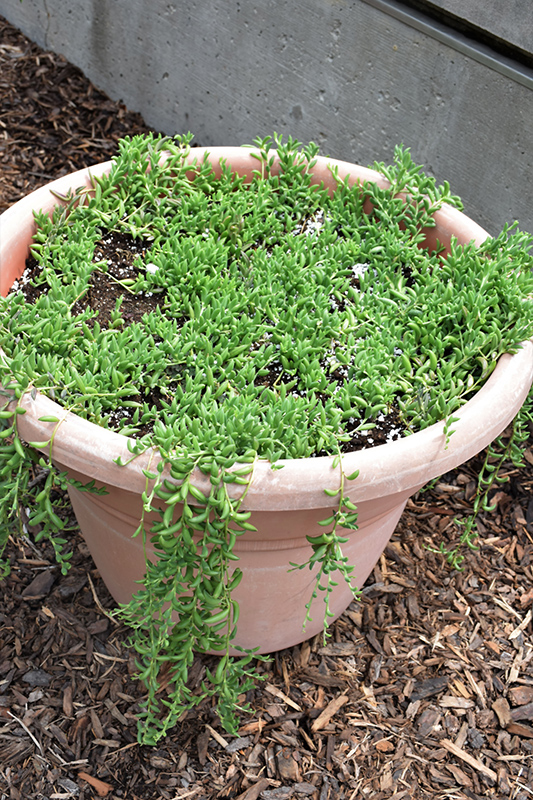Blue Pickle Vine
Senecio radicans var. glauca
Height: 6 inches
Spread: 3 feet
Sunlight:
![]()
![]()
Other Names: String of Fishhooks
Description:
An interesting trailing variety that is ideal for indoor containers, hanging baskets and rock gardens; featuring long strands of blue-green pickle shaped succulent foliage; easy to care for and low maintenance, perfect for beginners
Features & Attributes
Blue Pickle Vine's attractive succulent narrow leaves remain green in color with hints of steel blue throughout the year on a plant with a trailing habit of growth.
This is an herbaceous evergreen houseplant with a trailing habit of growth, eventually spilling over the edges of hanging baskets and containers. Its relatively fine texture sets it apart from other indoor plants with less refined foliage. This plant usually looks its best without pruning, although it will tolerate pruning.
Planting & Growing
When grown indoors, Blue Pickle Vine can be expected to grow to be only 6 inches tall at maturity, with a spread of 3 feet. It grows at a medium rate, and under ideal conditions can be expected to live for approximately 10 years. This houseplant will do well in a location that gets either direct or indirect sunlight, although it will usually require a more brightly-lit environment than what artificial indoor lighting alone can provide. It prefers dry to average moisture levels with very well-drained soil, and may die if left in standing water for any length of time. This plant should be watered when the surface of the soil gets dry, and will need watering approximately once each week. Be aware that your particular watering schedule may vary depending on its location in the room, the pot size, plant size and other conditions; if in doubt, ask one of our experts in the store for advice. It is not particular as to soil type or pH; an average potting soil should work just fine.
There are many factors that will affect the ultimate height, spread and overall performance of a plant when grown indoors; among them, the size of the pot it's growing in, the amount of light it receives, watering frequency, the pruning regimen and repotting schedule. Use the information described here as a guideline only; individual performance can and will vary. Please contact the store to speak with one of our experts if you are interested in further details concerning recommendations on pot size, watering, pruning, repotting, etc.
-- THIS IS A HOUSEPLANT AND IS NOT MEANT TO SURVIVE THE WINTER OUTDOORS IN OUR CLIMATE --

